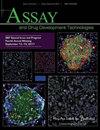Novel Therapeutics Involving Antibiotic Polymer Conjugates for Treating Various Ailments: A Review.
IF 1.6
4区 医学
Q4 BIOCHEMICAL RESEARCH METHODS
引用次数: 0
Abstract
Antibiotic polymer conjugates (APCs) are an essential part of polymer therapeutics. These conjugates have been used as an appealing platform for drug delivery. As a delivery vector, the administration route severely impacts the accessibility of antibiotics to their respective target site and therapeutic index. Furthermore, the physicochemical and biological properties of conjugates also correlate distinctly with the route of administration. The APCs delivery methods that have been disclosed so far suffer from significant constraints due to poor technology and constrained administration routes (mainly injections). Leading to promising directions, which include the development of specific characteristics for each polymer carrier, application of novel biodegradable polymers, expansion of traditional drug administration routes through the development of emerging routes, and the development of a rational and systematic methodology for designing administration routes are yet to be explored widely. This review focuses primarily on recent improvements in various routes of administration (dental, topical, and ocular) employing APCs. The mechanism of action, as well as other perspectives, have also been discussed. Moreover, this innovative technology provides a fresh perspective on pharmaceutical science research and offers unique and potential pathways for designing desired APCs.抗生素聚合物偶联物治疗各种疾病的新疗法:综述。
抗生素-聚合物偶联物(APC)是聚合物治疗的重要组成部分。这些偶联物已被用作药物递送的吸引人的平台。作为一种递送载体,给药途径严重影响抗生素到达各自靶点的可及性和治疗指数。此外,偶联物的物理化学和生物学特性也与给药途径明显相关。到目前为止已经公开的APC递送方法由于技术差和给药途径受限(主要是注射)而受到严重限制。有希望的方向,包括开发每种聚合物载体的特定特性、应用新型可生物降解聚合物、通过开发新兴途径扩展传统给药途径,以及开发合理和系统的给药途径设计方法,还有待广泛探索。这篇综述主要集中在使用APC的各种给药途径(牙科、局部和眼部)的最新改进上。还讨论了行动机制以及其他观点。此外,这项创新技术为药物科学研究提供了一个新的视角,并为设计所需的APC提供了独特而潜在的途径。
本文章由计算机程序翻译,如有差异,请以英文原文为准。
求助全文
约1分钟内获得全文
求助全文
来源期刊

Assay and drug development technologies
医学-生化研究方法
CiteScore
3.60
自引率
0.00%
发文量
33
审稿时长
>12 weeks
期刊介绍:
ASSAY and Drug Development Technologies provides access to novel techniques and robust tools that enable critical advances in early-stage screening. This research published in the Journal leads to important therapeutics and platforms for drug discovery and development. This reputable peer-reviewed journal features original papers application-oriented technology reviews, topical issues on novel and burgeoning areas of research, and reports in methodology and technology application.
ASSAY and Drug Development Technologies coverage includes:
-Assay design, target development, and high-throughput technologies-
Hit to Lead optimization and medicinal chemistry through preclinical candidate selection-
Lab automation, sample management, bioinformatics, data mining, virtual screening, and data analysis-
Approaches to assays configured for gene families, inherited, and infectious diseases-
Assays and strategies for adapting model organisms to drug discovery-
The use of stem cells as models of disease-
Translation of phenotypic outputs to target identification-
Exploration and mechanistic studies of the technical basis for assay and screening artifacts
 求助内容:
求助内容: 应助结果提醒方式:
应助结果提醒方式:


